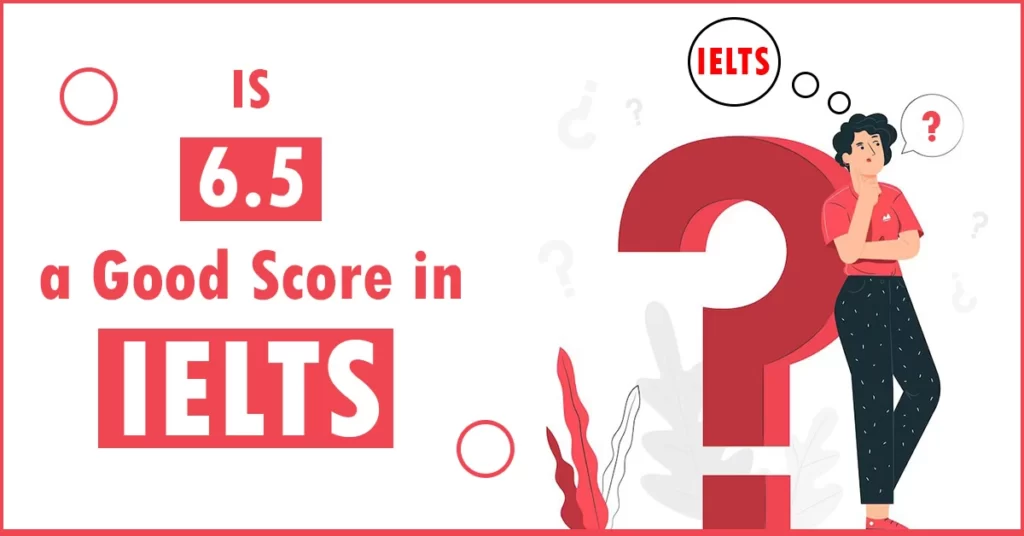An IELTS score of 6.5 indicates a good operational command of the English language. You can understand complex ideas and express yourself fluently in most academic and social situations. So, is a 6.5 good enough for studying abroad? The answer depends on several factors, which we'll explore in this article.
IELTS Score Requirements for Study Abroad
Universities worldwide accept IELTS scores as proof of English language proficiency. The minimum score required varies depending on the:
-
Country: Some countries, like the UK for undergraduate programs, have a baseline requirement of 6.0 overall with no band below 5.5.
-
University: Top universities often have higher requirements, sometimes exceeding 7.0 overall.
-
Program: Specific programs, especially those with a heavy emphasis on written or spoken communication, may have stricter score demands.
Understanding Your Target
Before diving into strategies, it's crucial to research the specific IELTS score requirements of your target universities and programs. Most universities clearly outline these requirements on their websites. This will give you a clear picture of the score you need to aim for.
Is a 6.5 a Good Score in IELTS for Study Abroad?
Yes, a 6.5 a good IELTS score that demonstrates a good operational command of the English language. You can understand complex ideas and express yourself fluently in most academic and social situations. However, whether it's sufficient for your study abroad plans depends on several factors:
-
University Requirements: Universities worldwide set their minimum IELTS score requirements. Research the specific requirements of your target universities and programs. Many universities outline these requirements clearly on their websites.
-
Program Competitiveness: Competitive programs or top universities might have higher IELTS score requirements exceeding 7.0. For instance, some universities in the UK require a minimum of 6.5 with no band below 6.0 for postgraduate programs.
Strategies to Improve Your IELTS Score
If you're aiming for a 6.5 or higher, here are some valuable strategies:
-
Official IELTS Materials: Utilize official IELTS resources like practice tests, sample answers, and examiner reports from the official IELTS website.
-
Structured Preparation: Enroll in an IELTS preparation course or work with a qualified tutor. They can guide you through the test format, develop test-taking skills, and provide personalized feedback.
-
Focus on All Sections: Don't neglect any of the four sections (Listening, Reading, Writing, and Speaking). Aim for a balanced improvement across all areas.
-
Develop Vocabulary and Grammar: Strengthen your vocabulary base and improve your understanding of grammar rules. This will enhance your ability to express yourself clearly and comprehend complex academic texts.
-
Practice Active Listening: Immerse yourself in English through listening to podcasts, audiobooks, or watching English-language movies and TV shows.
-
Simulate Test Conditions: Practice under timed conditions to build stamina and manage exam anxiety.
-
Develop Time Management Skills: Each section of the IELTS test has a specific time limit. Practice managing your time effectively during practice tests.
The Application Process
Once you have a good understanding of the IELTS score requirements and have prepared for the test, you can focus on the application process:
-
Research Universities: Thoroughly research universities and programs that align with your academic interests and meet your IELTS score requirements. Consider factors like program reputation, location, tuition fees, scholarship opportunities, and living expenses.
-
Prepare Application Materials: Gather all the required application documents, including transcripts, letters of recommendation, a statement of purpose, and your IELTS score report.
-
Meet Deadlines: Strictly adhere to application deadlines set by universities. Missing deadlines can lead to disqualification.
-
Prepare for Interviews: If shortlisted, some universities might conduct interviews. Prepare for these by researching the program and university and practicing your communication skills.
Conclusion
An IELTS score of 6.5 is a solid foundation, but depending on your aspirations, aiming higher could bolster your application. By employing effective strategies, thorough research, and a well-planned application process, you can unlock doors to exciting study abroad opportunities. For targeted guidance and a structured approach to achieving your desired score, consider enrolling in a reputable IELTS coaching in Delhi.
FAQ’s
Q1. Is a 6.5 in IELTS good for studying abroad?
A 6.5 is a good score, indicating strong English skills. It meets the minimum requirement for many universities. However, for competitive programs or top universities, aiming for 7.0 or higher might be better.
Q2. How do I find out the IELTS score needed for my program?
Check the target university's website.They usually have a dedicated "International Students" section outlining program-specific IELTS score requirements.
Q3. What can I do to improve my IELTS score to a 6.5 or higher?
Utilize official IELTS resources, consider a prep course or tutor, focus on all sections, build vocabulary and grammar skills, actively listen to English, practice timed tests, and manage your time effectively.
Q4. What are the steps involved in applying to study abroad?
Research universities, gather application materials (transcripts, letters of recommendation, statement of purpose, IELTS score report), meet deadlines, and prepare for potential interviews.
Q5. Where can I find more information about studying abroad and the IELTS test?
The official IELTS website offers valuable resources, and university websites provide program-specific information.



